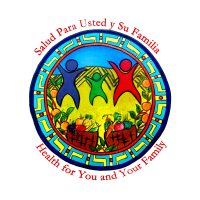The goal of the Education component is to use experiential learning and innovative teaching methods to increase the competency of faculty and undergraduate and graduate students.
- Education workgroup formed
- Developed new courses and modules that provided opportunities for undergraduate and graduate students to be exposed to improving health among children and families on the U. S. border with Mexico
- Developed Promotora 101 module
- Content included definitions, characteristics of Promotores/CHW (Community Health Workers), qualities of Promotores/CHW, core and emerging competencies, roles and responsibilities, training, workforce development, literature findings, models of care, reasons employers utilize Promotores/CHW, barriers/challenges, national movements, certification/credentialing, national strategies, best practices, and resources
- Course/modules developed
- Culture
- Cultural competence
- Border Health
- deployed in public health courses for graduate students
- Students recruited as project research interns
- Supervised all transcription and translation
- Moderated children’s and mothers’ platicas and fathers’ dyadic interviews
- Coordinated all data entry and verification
- Coordinated all GIS analysis
- Lead author on two manuscripts for journal submission
- Students completed public health internships and practicums
- Learnings and strategies were incorporated in graduate class for second-year MPH (Masters in Public Health) students
- Linkage established with Central Texas Maternal and Child Health Program (CTXMCH)
- Filmed a promotora-focused guest lecture
- Student developed Paseo Por El Super (A Trip through the Supermarket): A Hands-on, Fun Activity to Improve Supermarket Literacy for Limited-Resource Mexican-heritage Women in Texas Border Colonias
- Presented as a poster at 2016 Society for Nutrition Education and Behavior conference
- Lead author on game development
- Presented as a poster at 2016 Society for Nutrition Education and Behavior conference
- Worked with TX promotoras and community residents to create digital stories
- Students were given opportunities for field observations
